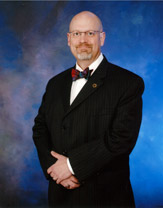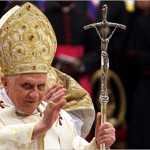One of the
major, early catalysts in the Protestant Reformation was a book by Jan
Hus, a Bohemian Christian who preceded Martin Luther by a full century.
The book was
De Ecclesia (
The Church), and one of Hus’s
most profound points was proclaimed in the title of his fourth chapter:
“Christ the Only Head of the Church.”
Hus wrote, “Neither is the pope the head nor are the cardinals the
whole body of the holy, universal, catholic [i.e., true] church. For
Christ alone is the head of that church.” Pointing out that most church
leaders in his era actually despised the lordship of Christ, Hus said,
“To such a low pitch is the clergy come that they hate those who preach
often and call Jesus Christ Lord.”
Hus’s candor cost him his life. He was declared a heretic and burned at the stake in 1415.
More than a hundred years later, and already at odds with the papal establishment, Martin Luther read
De Ecclesia.
After finishing the book, he wrote to a friend, “I have hitherto taught
and held all the opinions of Jan Hus unawares; so did John Staupitz. In
short, we are all Hussites without knowing it.”
As the head of the Roman Catholic Church, the pope is often called
the “Holy Father” and the “Vicar of Christ”—names and roles that only
apply to God. He claims the ability to speak
ex cathedra, exercising Godlike infallibility to add to and augment Scripture (
Revelation 22:18).
He wields unbiblical, unholy authority over his followers, usurping the
headship of Christ and perverting the work of the Holy Spirit.
The Reformers understood that and declared it with unashamed
boldness. As Martin Luther wrote to a friend, “We here are of the
conviction that the papacy is the seat of the true and real Antichrist. .
. . Personally I declare that I owe the Pope no other obedience than
that to Antichrist.”
In his
Institutes of the Christian Religion, John Calvin said: Continue at
John F. MacArthur Jr.



















